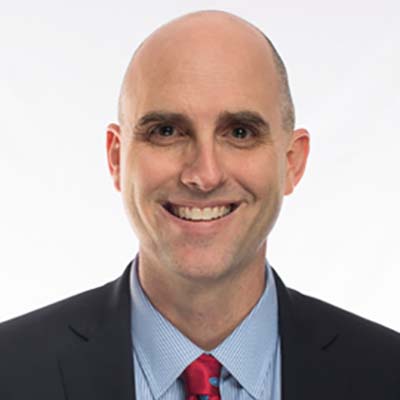Like many of you, I was deeply saddened to read about the death by suicide of Lorna Breen, MD, an emergency department medical director at NewYork-Presbyterian Allen Hospital. Dr. Breen spent weeks treating patients at the epicenter of the U.S. coronavirus pandemic and eventually contracted COVID-19 herself. While she had no history of mental illness, her loved ones say she sounded distressed in her final weeks as she described wrenching scenes of patients dying while awaiting care.
“Make sure she’s praised as a hero, because she was,” her father told The New York Times. “She’s a casualty just as much as anyone else who has died.”
As an emergency physician working in Seattle, which experienced one of the earliest U.S. outbreaks, I was moved by Dr. Breen’s story. Even before COVID-19, almost half of all physicians reported symptoms of burnout and were twice as likely to die by suicide as the general population. The arrival of the coronavirus has now added exponentially to that pain, fueling existential anxiety about our patients, selves, families, and jobs. The magnitude of this stress can only be described as trauma.
Perhaps one of the best ways we can honor Dr. Breen is by shedding light on this mental health crisis. Many providers have been shaped by a culture that penalizes asking for help or showing human emotion. But the pandemic is forcing us to confront a fundamental truth: When our front-line providers are depleted, we are all at the mercy of the virus. It’s therefore essential that we take steps to promote provider well-being—especially in the face of this global emergency.
In this post, I’ll share a framework that front-line clinical leaders and providers can use to stay safe, sane, and resilient through these difficult times. Please remember that these self-care strategies are no substitute for professional mental healthcare. Now more than ever, it’s important to seek assistance when you need it. Healthcare leaders can foster this by discussing confidential care resources with their teams.
Step 1: Start with your body
Maslow’s hierarchy teaches us that it’s impossible to self-actualize when you’re starving, freezing to death, or otherwise fighting for survival. In the same vein, it’s challenging to make decisions, process emotions, and find the “right” words when your body is under strain. Here are some essential areas to focus on:
- Sleep is crucial to mental health, cognitive tasks, and immunity. Try to get 7-9 hours a night, even if it means going to bed earlier.
- Hydration helps all of our body functions run smoothly and also modulates appetite and stress eating. Aim for 0.5 to 1 ounces of fluid per pound of body weight per day.
- Eating a healthy, whole-food diet rich in fruits, vegetables, whole grains, nuts, and legumes helps to energize and regulate your body while avoiding spikes in blood sugar. What’s more, 70% of the cells that mediate immunity are located in your gut, so a healthy diet provides insurance against disease.
- Exercise for at least 30 minutes three times a week. Getting outdoors when possible will raise levels of feel-good neurotransmitters like serotonin and dopamine.
Next, tune up your mind
Once your body is tuned up and well cared for, you will be free to focus on nurturing your mind and emotions. Counseling, coaching, and peer mentoring can be extremely effective ways to manage your mind during times of crisis. You can also try the following self-care strategies.
First, consider the “diet” you feed your brain. If you’re saturating it 24 hours a day with distressing cable news and political podcasts, you’re going to see the results reflected in your body and behavior. A better approach is to focus your attention on the places, people, and experiences that make you feel most alive. Experiencing joy refills your cup so that you have energy and compassion to give to the world. I experience that joy through time spent with my family at a park across the street from our home. Before this pandemic, we often overlooked that area in favor of the more prominent attractions of the Pacific Northwest. But in this time of shelter-in-place, our neighborhood park is an oasis right outside our door.
Mindfulness practices can also help you to deal with stress, connect to your emotions, and make sense of the inexplicable. During a mindfulness session, you experience nonjudgmental acceptance of what is that allows you to process experiences in new ways. Meditation, breathwork, journaling, and yoga are just a few common examples of the mindfulness practices available to you.
Finally, realize that difficult and even traumatic events can be a catalyst for personal transformation. Months or years after a disaster, many survivors report experiencing “post-traumatic growth” that opens the door for greater appreciation of life, deeper relationships, new possibilities, and heightened spirituality. Of course, when you’re in a painful moment, there’s no need to strive for growth or minimize your suffering. But if it feels right for you, open yourself to the possibility of transformation by fire.
Finally, focus outward
Once your body and mind are centered, it’s time to turn your energy to others. Focusing on your fellow humans is one of the best antidotes for personal pain and suffering. And it’s in these dark times that your light will shine brightest.
Even if you’re not in a leadership position, you can do much to lighten the burden for your patients and colleagues. Pause during your busy day to ask patients and colleagues how they’re doing and listen carefully to their answers. It’s especially important to check in if you see a colleague struggling. Though it may feel awkward, showing genuine, nonjudgmental concern helps break the culture of silence in medicine. Also, this is an important time to express gratitude for everyone in your orbit, including registrars, custodians, and others who help the unit go around.
If you’re a healthcare leader, you can help your team cope by creating opportunities to connect with others and process emotions. Healthcare workers often feel alone in their pain because they have so many experiences that friends and family cannot relate to. However, this “apartness” also means they have great capacity to heal and comfort one another. So be sure to create opportunities to bring people together, whether it’s a Zoom happy hour or a formal debriefing session. You can also help by modeling good self-care and honestly sharing your own experiences; you’ll be surprised how much they resonate with others around you.
In summary
The coronavirus pandemic will test the mettle of the “toughest” providers. For years, physicians, advanced providers, and nurses have been at high risk for burnout and depression. Now the pandemic is layering existential threats on top of that pain. As Dr. Breen’s experience shows, dealing with a disaster for weeks on end can rock even a smart, stable, healthy individual to the core.
On the other hand, the pandemic can be a time of great compassion, heroism, and personal transformation. As healthcare providers, we have trained for our entire lives for a moment like this one. We didn’t choose it. But we can choose who we want to be while it’s happening. Being at our best starts with caring for ourselves so that we have more to give to our patients, colleagues, and communities.























